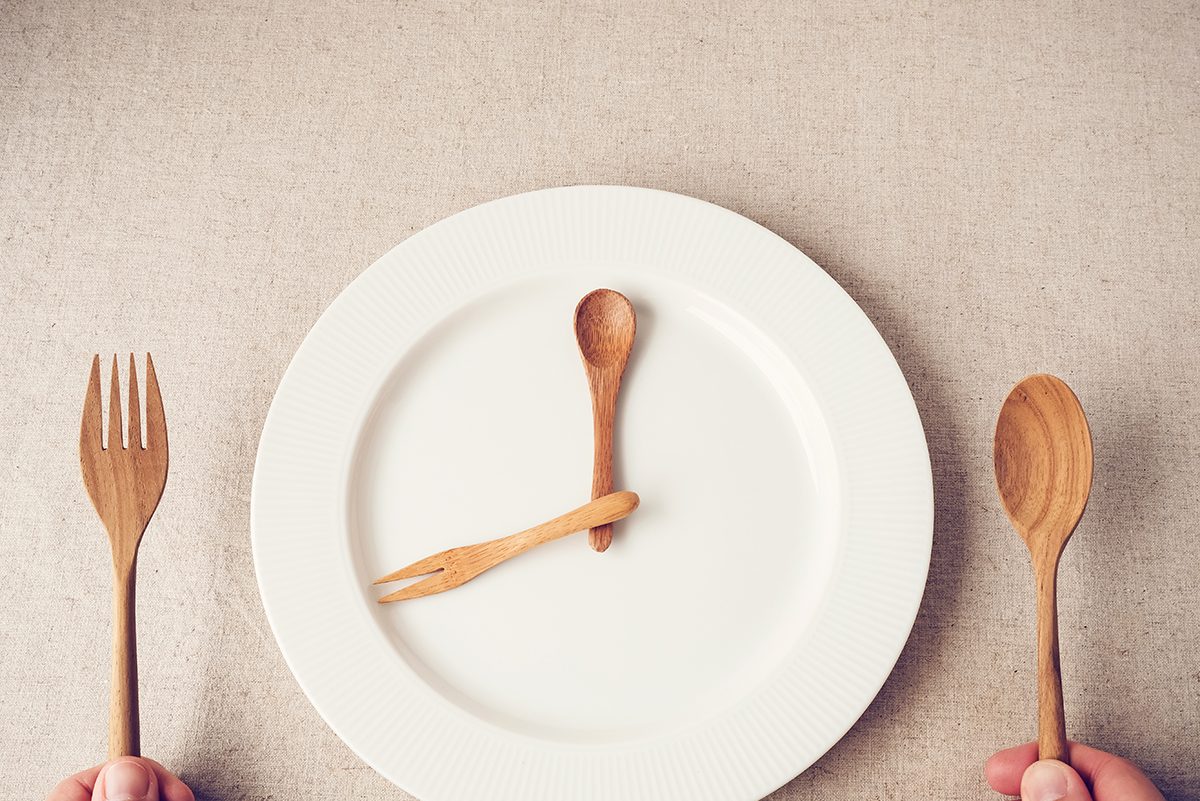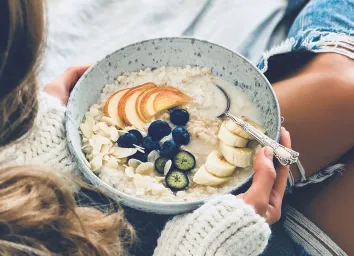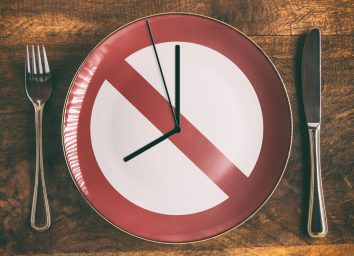Is Fasting Healthy? We Asked a Registered Dietitian

Intermittent fasting has been trending in recent years, with big-name (and fit) celebrities such as Vanessa Hudgens popularizing it. However, we wanted to consult an expert, Sydney Greene, MS, RD, to see if fasting is actually healthy for you. What we found out? As is the case with just about any diet, it's respective to the individual.
Find out if you're an ideal candidate for fasting, how healthy fasting really is, and see if it will help you achieve your health goals.
In general, is fasting an effective, healthy method for weight loss?
"Yes, studies have shown that overweight and obese individuals will lose weight when sticking to a time-restricted eating pattern, primarily an eight-hour eating window," explains Greene. "However, emerging research has looked at both the results of time-restricted diets and calorically restricted diets and found similar results."
In other words, what may be a successful method of weight loss for one individual may not be nearly as effective for another.
"Fasting may work for one person, but be torture for the next, just as decreasing calories may be successful for some and not others," she adds.
Some individuals benefit from following an intermittent fasting diet. In a former article, Patricia Bannan, MS, RDN, and LA-based nutritionist and healthy cooking expert, explained how intermittent fasting both promotes and expedites the fat-burning process.
"Intermittent fasting causes glucose (sugar) concentrations to decrease and lipolysis (fatty acid oxidation) to increase significantly during the first 24 hours, which helps the body break down stored fat," she said.
Who shouldn't fast?
Greene says that women who are trying to become pregnant, are pregnant, or are breastfeeding should not fast. Cedrina Calder, MD, explained why fasting would be detrimental to a woman who is pregnant or breastfeeding in the same article: "Pregnancy and breastfeeding require adequate intake of calories for proper development of the baby and milk production. Periods of fasting will interfere with your caloric intake, so pregnant and breastfeeding women should not do intermittent fasting."
Those who have type 1 diabetes also shouldn't experiment with fasting, especially because these individuals receive insulin—which is vital for their survival—through a pump and "irregular fluctuations in food intake can severely affect insulin levels," says Greene.
Others who should look for another weight-loss method are those with cardiovascular disease, hypertension, and even those who have anxiety, depression, or severe mood swings.
"Though some studies have looked at fasting and depression, there is more evidence to support regular consumption of whole, nutrient-dense foods, and brain health," says Greene.
Who is a good candidate for fasting?
Those who are prediabetic, or on the verge of developing type 2 diabetes—the type caused primarily from poor diet and obesity. These individuals are at a higher risk of hyperglycemia, or the state in which there is too much glucose (sugar) circulating in the bloodstream and not enough insulin to balance it out. In other words, these individuals would benefit from lower blood sugar levels.
"Fasting has shown to decrease blood sugar by 3-6 percent," says Greene.
Individuals who are overweight or obese and are trying to lose weight for health reasons would also benefit from fasting if they found that sticking to a wholesome meal plan wasn't effective.
What does effective fasting look like?
"A 12 hour fast with 2 hours in-between meals is an ideal setup," says Greene.
These respective gaps in eating intervals facilitate digestion and ultimately allows the body to restore and regenerate new cells.
"If 12 hours is comfortable, experimenting with 13 or 14 hours can be beneficial. I find when clients have breakfast in the morning and stop eating earlier in the day, rather than continuing the fast through the morning, they are less focused on food as the sun starts to set, which is in line with our body's natural circadian rhythm," says Greene.
If fasting is causing you to obsessively dwell about food though, that stress response can hinder the results by causing you to over-indulge during your eating intervals or reduce activity levels. If you're not sure fasting is right for you, Greene suggests skipping the evening snack and fasting from dinner to breakfast.
"I recommend my clients aim for a 10-12 hour fast overnight. For example, breakfast at 8 a.m. and the last bite at dinner ending at 8 p.m. This is much more manageable than a cut off time of say 3 p.m. or a start time of 11 a.m.—the key with a healthy fasting period is to make it realistic and doable," says Greene.
What's the best way to start fasting?
"The key with fasting is to stick to a regular structure," she says. "I have seen individuals erratically fast based on their schedule and then get frustrated when they don't feel or see the benefits. If fasting is a tool someone is going to utilize, life has to fall in line with it, and if it doesn't, that might be a sign you need to rethink it."








